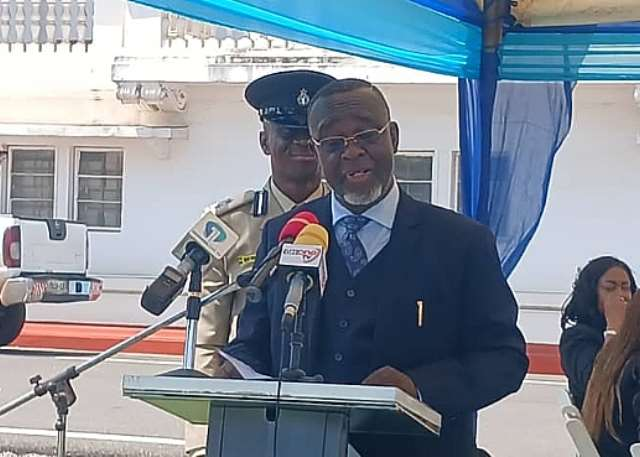Inclusivity is crucial in technology application in court operations – Acting CJ


Acting Chief Justice Paul Baffoe-Bonnie has called for inclusiveness in the application of technology in the operations of the courts to ensure that no one is left behind.
“Technology must not create new divides between those who can access it and those who cannot,” he said.
“As we digitise, we must ensure that no citizen is left behind- rural communities, the elderly, and those without digital literacy are equally empowered to benefit from a modernised judicial system.”
Justice Bafoe-Bonnie said this to usher in the 68th Legal Year, which is themed: “Building the Pillars of Justice Delivery through Leadership, Innovation, and Technology.”
Investing in technology should go hand in hand with the building of the capacity of judges, lawyers, and court staff, he noted.
“Training and re-training are essential if digital tools are to be effectively used and sustained.”
Justice Baffoe-Bonnie said the convergence of leadership, innovation and technology was not accidental, but strategic.
“When we integrate these three pillars, we create a justice system that is resilient, inclusive and future-ready,” he noted.
The Acting Chief Justice pledged his commitment to strongly engage stakeholders, every step of the way, to build these pillars of justice to enable the judiciary to deliver on its constitutional mandate.
“Our reforms, our systems, and our innovations must ultimately serve the ordinary citizens who come to court with hope. To them, justice delayed is not merely justice denied – it is trust betrayed. We cannot afford betrayal,” he added.
He noted that embracing technology would enhance transparency by allowing litigants to track their cases, reduce delays and widen access by breaking geographical barriers.
Technology, he noted, was no longer a luxury for justice delivery but a necessity, being a new frontier of justice.
Justice Baffoe-Bonnie said the challenges facing Ghana’s Justice system was heavy caseloads, case backlogs, limited resources and procedural delays.
However, those challenges could not be addressed by doing things the same way they had been done.
“These challenges can be addressed through innovations,” he said, adding that innovation was not only about introducing new systems but cultivating “a culture that values efficiency, openness and adaptability.”
Court users ought not to encounter barriers but rather pathways with clear signage, simplified forms, helpful court staff and procedures that respect their time and dignity, the Acting Chief Justice said.
He charged the Judiciary to be open to progressive interpretations that reflected the changing realities of society, balancing continuity with the need for justice that was “relevant and living.”
On Leadership, Justice Baffoe-Bonnie said the Judiciary must embrace collaborative leadership by bridging the gaps between the court, law enforcement agencies, and communities.
“By building partnerships across institutions, we create a justice ecosystem that is responsive to the needs of society.”
He said the delivery of justice was not merely an institutional function, but the lifeblood of a democratic society.
Justice Baffoe-Bonnie, therefore, urged the courts to remain bastions of fairness, impartiality and accountability.
DISCLAIMER: The Views, Comments, Opinions, Contributions and Statements made by Readers and Contributors on this platform do not necessarily represent the views or policy of Multimedia Group Limited.
DISCLAIMER: The Views, Comments, Opinions, Contributions and Statements made by Readers and Contributors on this platform do not necessarily represent the views or policy of Multimedia Group Limited.
Source link





